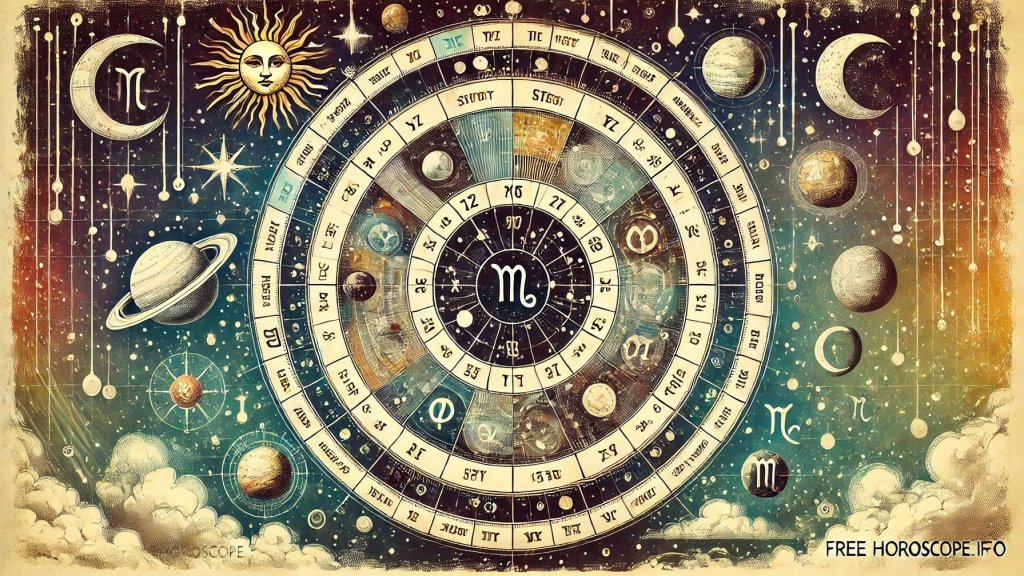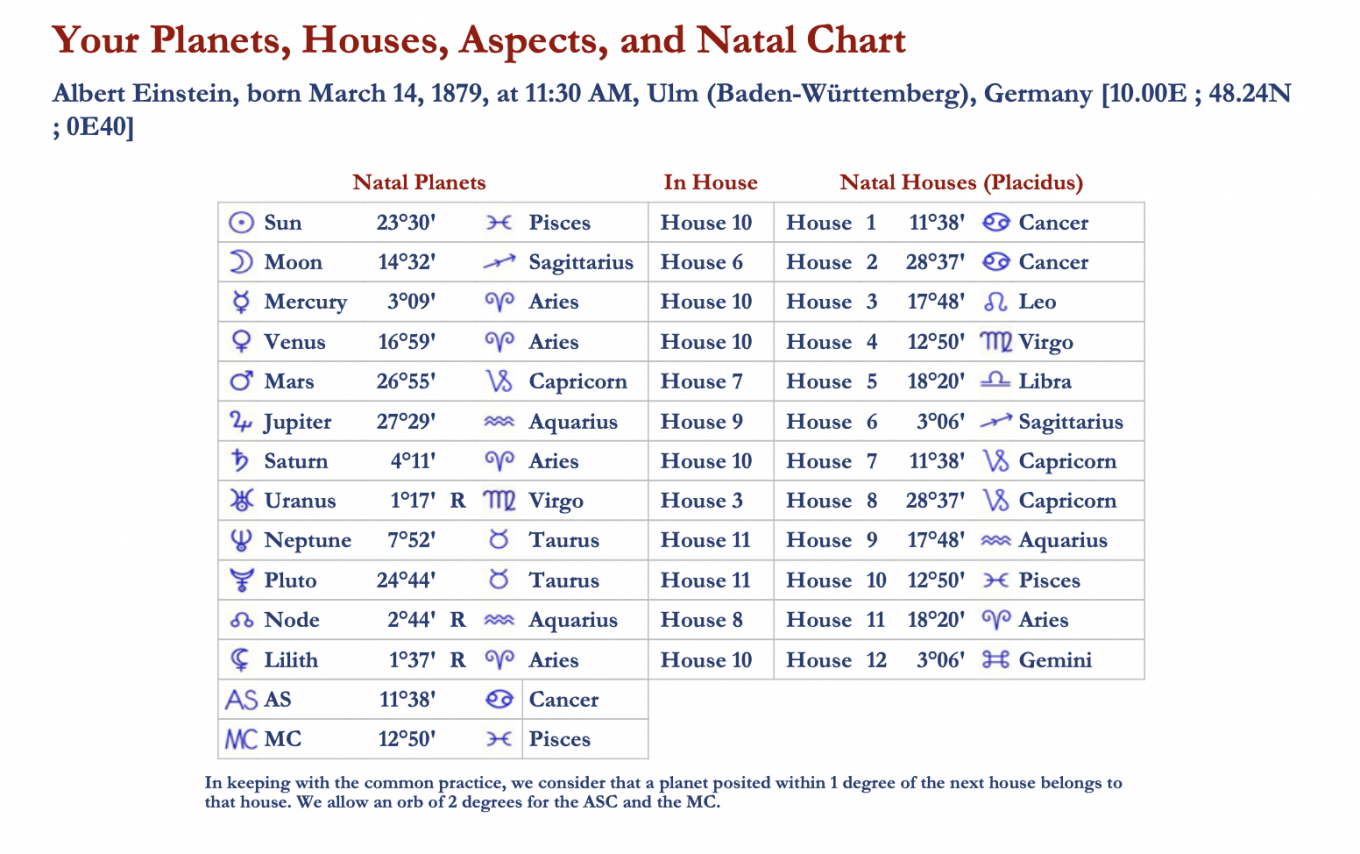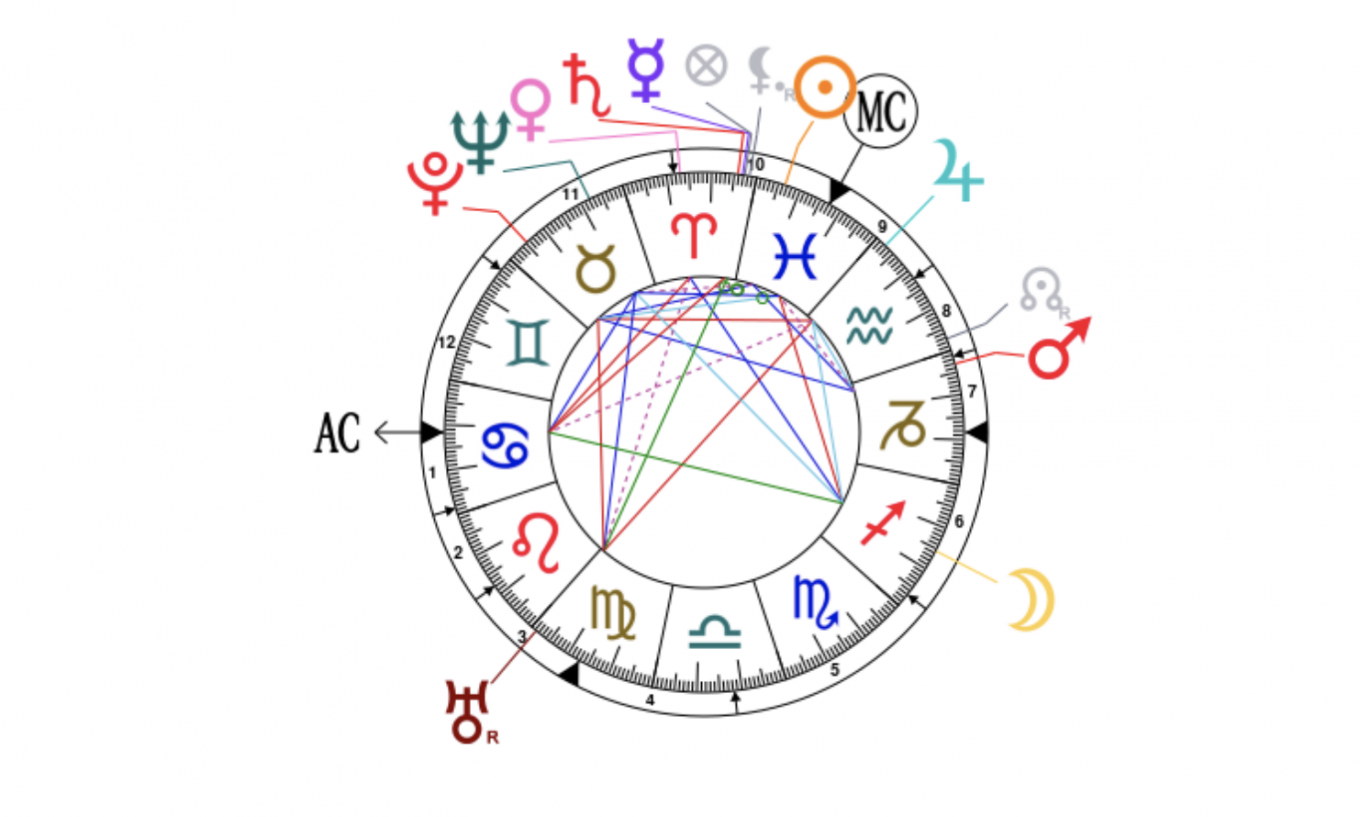What is a Natal Chart, and How to Interpret It? A Comprehensive Guide

A natal chart, also known as a birth chart, is a snapshot of the sky at the exact moment and location of your birth. This essential tool in astrology reveals the positions of the planets, sun, and moon, and helps uncover insights about your personality, strengths, and challenges. In today’s guide, we delve straight into what a natal chart is, its key components, and a step-by-step approach to interpreting it—all while keeping SEO best practices and a journalistic, inverted pyramid style in mind.
A natal chart, also known as a birth chart, is a snapshot of the sky at the exact moment of an individual’s birth. It maps out the positions of the Sun, Moon, planets, and astrological houses, providing deep insights into personality, strengths, challenges, and life path. Astrologers use natal charts to uncover patterns and traits that influence a person's life journey.
Key Elements of a Natal Chart
1. Zodiac Signs and Their Influence
Each planet in a natal chart is positioned within a specific zodiac sign, affecting how it expresses itself. For example:
- Sun Sign: Represents core identity and life purpose.
- Moon Sign: Governs emotions, intuition, and subconscious patterns.
- Rising Sign (Ascendant): Reflects outward personality and how others perceive you.
2. Planets and Their Roles
Each planet influences a different aspect of life:
- Mercury: Communication and intellect.
- Venus: Love, relationships, and aesthetics.
- Mars: Passion, ambition, and drive.
- Jupiter: Growth, expansion, and luck.
- Saturn: Discipline, responsibility, and structure.
- Uranus, Neptune, and Pluto: Influence generational shifts and spiritual growth.
3. Astrological Houses and Their Meaning
A natal chart is divided into 12 houses, each governing different life areas:
- 1st House: Self-image and identity.
- 2nd House: Finances and material possessions.
- 3rd House: Communication and learning.
- 4th House: Home and family.
- 5th House: Creativity, pleasure, and romance.
- 6th House: Work, health, and daily routines.
- 7th House: Relationships and partnerships.
- 8th House: Transformation and shared resources.
- 9th House: Higher learning and travel.
- 10th House: Career and public reputation.
- 11th House: Friendships and social groups.
- 12th House: Spirituality and hidden matters.
4. Aspects and Their Influence
Aspects refer to the angular relationships between planets, influencing how they interact:
- Conjunction: Amplifies planetary energies.
- Opposition: Creates tension and challenges.
- Trine: Harmonious and supportive.
- Square: Indicates internal conflict requiring growth.
- Sextile: Encourages opportunities and talents.
How to Read a Natal Chart
- Gather Accurate Birth Data: Ensure you have the exact date, time, and location of birth.
- Identify Core Elements: Analyze Sun, Moon, and Rising signs.
- Assess Planetary Positions and Aspects: Determine how planets interact and shape personal traits.
- Understand the Houses: Examine which areas of life are most influenced by planetary placements.
- Look for Patterns: Recognize themes that repeat across the chart, highlighting strengths and challenges.
Real-Life Example: Analyzing Albert Einstein’s Natal Chart
Albert Einstein’s natal chart offers a fascinating glimpse into the astrological influences that shaped his intellect, personality, and career. Below is a detailed breakdown of key astrological factors in his chart:


1. Dominant Elements and Modalities
Water Element Dominance – His chart reveals a strong Water influence, highlighting emotional depth and intuitive intelligence, which contributed to his visionary thinking. Mutable Mode Emphasis – A high concentration of Mutable signs indicates flexibility, adaptability, and an unquenchable thirst for knowledge, key traits of a lifelong learner and innovator.
2. Planetary Dominants
Moon Dominance – The Moon’s prominence in his chart suggests heightened imagination and the ability to absorb knowledge instinctively. Neptune Influence – Neptune’s strong placement aligns with creative and visionary thinking, which explains his revolutionary scientific insights. Sun’s Role – Einstein’s Sun placement reinforces his charismatic presence and innate leadership in scientific fields.
3. Key Zodiac Influences
Sun in Pisces – Represents his deep intuition, abstract thinking, and ability to grasp complex theoretical concepts. Moon in Sagittarius – Suggests a restless intellect, always seeking higher truths and expanding intellectual horizons. Cancer Ascendant – Reflects his strong emotional core, sensitivity, and deep connection to his work.
4. Significant Astrological Houses
10th House (Career & Public Reputation) – A strong 10th house placement indicates a destined path toward fame and professional influence. 6th House (Work & Dedication) – Highlights his disciplined work ethic and focus on scientific research. 11th House (Friendships & Social Impact) – Suggests that collaborations and intellectual exchanges played a crucial role in his discoveries.
5. Intellectual and Psychological Traits
Sun in Pisces + Cancer Ascendant – A combination that fosters deep thought, imagination, and groundbreaking theoretical advancements. Mercury Conjunct Saturn in Aries – A disciplined, structured, and precise mind, capable of pioneering new ideas and theories.
6. Emotional and Relationship Aspects
Moon in Sagittarius – A free-spirited and optimistic emotional nature, supporting his curiosity-driven research. Venus in Aries – Reflects a passionate and direct approach to personal relationships and interactions.
7. Drive and Determination
Mars in Capricorn – Symbolizes perseverance, discipline, and a goal-oriented approach, key factors in his relentless pursuit of scientific discovery.
8. Career and Destiny
Sun Conjunct Midheaven – A strong indicator of worldwide recognition and a lasting legacy in the field of science.
This astrological analysis demonstrates how Einstein’s natal chart aligns with his intellectual brilliance, emotional complexity, and unwavering pursuit of knowledge, all of which cemented his legacy as one of history’s greatest scientific minds. To illustrate natal chart interpretation, let’s analyze Albert Einstein’s birth chart:
- Sun in Pisces: His creativity and intuitive genius shaped his scientific innovations.
- Mercury in Aries: A sharp and pioneering intellect allowed him to develop groundbreaking theories.
- Saturn in Aries: Highlighted the discipline and persistence required for his revolutionary work.
This combination of planetary placements reveals why Einstein was not only a visionary thinker but also a dedicated scientist.
Frequently Asked Questions (FAQ)
1. What is a natal chart used for?
A natal chart provides insights into an individual's personality, strengths, and life path based on the positions of celestial bodies at birth.
2. Can I interpret my natal chart without an astrologer?
Yes! With online tools and guides, you can analyze the placements of planets, signs, houses, and aspects. However, professional astrologers provide deeper insights.
3. How accurate are natal charts?
The accuracy depends on having the correct birth date, time, and location. A precise chart offers more detailed and reliable interpretations.
4. What if I don’t know my exact birth time?
While an exact time provides the most accurate reading, you can still analyze planetary positions. A rectification process can estimate a birth time based on life events.
5. Do natal charts predict the future?
Natal charts reveal personality traits and life tendencies rather than concrete predictions. They offer guidance rather than deterministic forecasts.
Conclusion
A natal chart is a powerful astrological tool that provides profound insights into personal growth and life direction. By understanding zodiac signs, planetary placements, and house divisions, individuals can navigate life with greater self-awareness and purpose.
For more in-depth astrological insights, visit FreeHoroscope.info.


